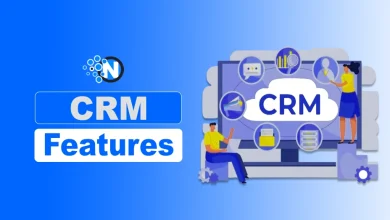The Future of Work Is Now: Rethinking Talent, Skills, and Organizational Agility

The discussion has changed, both in boardrooms and breakrooms.
The future of work is not a far-fetched idea; it is a reality today. With the world being transformed by artificial intelligence (AI), automation, and hybrid work environments, organizations are evaluating the concept of being agile, digitally fluent, and prepared to adapt to constant change.
At the heart of this transformation is a pressing question: how can companies not only keep up but lead?
In this blog post, I will discuss why rethinking talent, skills, and organizational agility is the future of work.
The Acceleration of Change
Disruption used to be cyclical. Now, it’s constant.
Emerging technologies, such as generative AI, robotics, and machine learning, are evolving faster than many organizations can adapt. According to this year’s Future of Jobs Report 2025 from the World Economic Forum, technology will be the most disruptive force shaping the labor market.
Within the next five years, digital access should become faster due to the development of artificial intelligence and various information-processing technologies, and generate 19 million new employment opportunities without eliminating about nine million jobs. This prediction shows that companies should re-evaluate their role structures and their talent development strategies.
These changes aren’t isolated to tech giants. From finance and manufacturing to retail and healthcare, industries of all kinds are facing a talent transformation mandate.

A New Kind of Talent Strategy
An organization’s adaptability will increasingly depend on how well it supports people in building the right skills. Singularity University, a leader in executive education for exponential technologies, has long emphasized that continuous learning is no longer optional. It’s an operational imperative.
At Singularity, participants in leadership executive programs dive deep into emerging tech trends and human adaptability. They learn to view disruption not as a threat, but as an opportunity to design the future of work, rather than be consumed by it.
This shift means organizations must reimagine hiring, onboarding, and professional development—not as isolated touchpoints but as an integrated, ongoing experience.
Reskilling, Not Replacing
Rather than replacing talent with tech, leading companies are reskilling workers for tech-enabled roles. Amazon, for example, has committed over $1.2 billion to upskill 300,000 employees by 2025. Similarly, PwC’s “New World. New Skills.” initiative focuses on empowering its workforce to understand and harness digital tools, rather than fear them.
This kind of investment not only safeguards institutional knowledge but builds loyalty in a workforce that increasingly prioritizes development over traditional perks.
In this new landscape, upskilling becomes a competitive advantage, not a cost center.
Designing for Agility
The transformation of the workforce is more about the mindsets than it is about their skillsets. Companies are also finding that the hierarchies and inflexible job descriptions are no longer viable in a place where there are sudden changes.
Rather, agile organization design is assuming the center stage. These consist of fluid teams, project-based positions, and leaders who are trained to operate in the grey world. It is also about finding room to experimen,t and failure is not punished but is a learning opportunity.
Companies like Haier (a Chinese multinational appliance manufacturer) have famously implemented micro-enterprise models, breaking down the traditional company structure into small, self-managing teams. The result? Faster innovation, better customer responsiveness, and higher employee engagement.
Hybrid Work: From Perk to Platform
The pandemic proved what many suspected: knowledge work doesn’t have to happen in an office to be effective. But now that hybrid work is the norm rather than the exception, companies are realizing it’s more than a logistical change, it’s an essential one.
Forward-thinking organizations are reengineering hybrid work not just around convenience, but around connection, collaboration, and clarity. They’re investing in:
- Digital collaboration platforms
- Redesigned workflows
- Inclusive leadership training
- Equitable performance measurement
And they’re no longer thinking in binary terms of remote vs. in-office, but designing systems where flexibility and productivity can thrive together.
The Rise of Adaptive Leadership
One of the most critical skills in the future of work isn’t technical, it’s human.
Adaptive leadership, which involves gaining proficiency to deal with challenging situations, collaborating within diverse teams, and reacting quickly to situations that are rapidly evolving, is now regarded as a necessity in all industries. It should come as no revelation, therefore, that executive education programs are giving less attention to the command-and-control techniques of the old school, and more to empathy, systems thinking, and change management.
Being a leader nowadays is not about being the one who knows it all. It is about asking the right questions- and enabling your team to assist in coming up with the solutions.
Building a Culture of Continuous Learning
A high-performance culture in the new world of work is a learning culture.
Firms start making investments in learning eco-systems, which combine internal academies, AI-filtered materials, and employee-led career journeys. These programs not only increase retention, but they also enhance customer results and innovation.
A Deloitte survey found that high-performing learning organizations are 92% more likely to innovate, 56% more likely to be first to market, and 17% more profitable than their peers.
For organizations still clinging to outdated training models or annual reviews, the message is clear: transform your learning culture, or fall behind.
Final Thoughts: The Future of Work Is Now
And for organizations willing to adapt, it represents an unprecedented opportunity, not only to survive disruption, but to be disrupted successfully. This means investing in people, embracing flexible structures, reskilling at scale, and fostering a culture that values curiosity over certainty.
It doesn’t matter whether you are managing a global team or a startup: change is coming. It is a matter of being prepared to face it.




